 Ever since the first stir they created in the early 1930s the Southern Agrarians have been difficult to assess. How serious, politically and economically, were they in what they advocated? How much agreement was there among them? The four collected above papers point up and even accentuate their divergence, investigating wide-ranging and, at least on the surface, incommensurate aspects of their thought. One essay, for instance, by Judith Shank, is primarily cultural and aesthetic in its concern, examining the implications of John Crowe Ransom’s defense of a code of courtesy. Another, by Virginia Arbery, takes up Allen Tate’s advocacy of metaphysical “violence” in his quest for right order, and a third, by Steven Ealy, investigates Robert Penn Warren’s social concern for the black Southerner. These papers make clear how startlingly dissimilar were the Agrarians’ modes of thought, and how serious was the divergence in their specific concerns for the good society.
Ever since the first stir they created in the early 1930s the Southern Agrarians have been difficult to assess. How serious, politically and economically, were they in what they advocated? How much agreement was there among them? The four collected above papers point up and even accentuate their divergence, investigating wide-ranging and, at least on the surface, incommensurate aspects of their thought. One essay, for instance, by Judith Shank, is primarily cultural and aesthetic in its concern, examining the implications of John Crowe Ransom’s defense of a code of courtesy. Another, by Virginia Arbery, takes up Allen Tate’s advocacy of metaphysical “violence” in his quest for right order, and a third, by Steven Ealy, investigates Robert Penn Warren’s social concern for the black Southerner. These papers make clear how startlingly dissimilar were the Agrarians’ modes of thought, and how serious was the divergence in their specific concerns for the good society.
Shank finds in Ransom’s poem “Equilibrists” his prescription for a culture—the balance between what the Greeks called physis and nomos: desire and restraint, impulse and code. Informing the essay “Forms and Citizens,” in which, as she points out, Ransom defends knowledge without appropriation, is the idea of form and ritual as delaying principles, strategies that allow the aesthetic to manifest itself. “A genuine culture, whatever its moral flaws, is an analogue of something nobler toward which the human spirit aspires but which it can grasp only by submission to the actual,” she writes; and: “The poet’s—the citizen’s—task is not the creation of an ideal world but the discovery of a real one.” Shanks’ commentary would seem to reveal in Ransom the tacit assumption that though societies cannot avoid moral flaws and hence cannot attain perfection, they can still provide the good life if not driven by the predatory motives of efficiency and control.
Arbery illuminates the theological concern behind Tate’s troubled vision of his native land. She makes clear that Tate attributes the defeat of the South to a lack of religious belief: it was a feudal society without a feudal religion; it did, however, possess a “common historical myth.”[1] Tate considers the agrarian anthology too exclusive in its implications; “it points to a particular house but omits to say that it was the home of a spirit that may also have lived elsewhere and that this mansion in short was incidentally made with hands.”[2] Real community is “the recurrent discovery of the human communion as experience, in a definite place and at a definite time.”[3] The intellectual attitude that has to be maintained in the South, Tate maintains, is a radical violence—”cutting away the overgrowth and getting back to the roots.”[4]
Ealy’s presentation deals with what became for Warren a lifelong concern: the plight of the black Southerner. Warren later regretted this early essay, however, as being a defense of segregation, no matter how “cogent and humane.” Nevertheless, Ealy highlights a few fundamental and unchanging points in Warren’s manifesto, one being that the very manhood of the white depends upon his acknowledging the common humanity of the black. He makes the challenge: “if the southern white man feels that the agrarian life is better, he must find a place in it for the Negro”—in fact, for the black community. Raising the question of the absence of this concern in the writings of the other Agrarians (except for Tate’s later work) and Warren’s virtual obsession with it in his later writing, Ealy forces a reexamination of the significance of this crucial omission. What does it say, if anything, about their theories?
 As one can surely see, these papers raise significant questions to be asked about this group of thinkers—and, to be just, we must include in our speculations the writing of one of their most committed members, Donald Davidson. First of all, we must ask, were they a school of thought at all? Second, if so, what was their attitude toward the Old South? Did they make the idolatrous mistake Mark Malvasi (and others) attribute to them of raising the South to the status of the heavenly city?[5] Third, what is the connection of I’ll Take My Stand: The South and the Agrarian Tradition to the world of actuality? Is it mythic, metaphorical, utopian? Is it a seriously argued political tract like Dante’s De Monarchia or a visionary work like Yeats’ A Vision? Is it to be taken as literally as Eliot’s Notes toward the Definition of Culture or as metaphorically as More’s Utopia? Finally, and perhaps most crucial to the endurance of their contribution, does the significance of the Agrarian movement lie in its political thought? Or, alternatively, in its literary implications?
As one can surely see, these papers raise significant questions to be asked about this group of thinkers—and, to be just, we must include in our speculations the writing of one of their most committed members, Donald Davidson. First of all, we must ask, were they a school of thought at all? Second, if so, what was their attitude toward the Old South? Did they make the idolatrous mistake Mark Malvasi (and others) attribute to them of raising the South to the status of the heavenly city?[5] Third, what is the connection of I’ll Take My Stand: The South and the Agrarian Tradition to the world of actuality? Is it mythic, metaphorical, utopian? Is it a seriously argued political tract like Dante’s De Monarchia or a visionary work like Yeats’ A Vision? Is it to be taken as literally as Eliot’s Notes toward the Definition of Culture or as metaphorically as More’s Utopia? Finally, and perhaps most crucial to the endurance of their contribution, does the significance of the Agrarian movement lie in its political thought? Or, alternatively, in its literary implications?
These are the questions that require attention in any attempt to evaluate Agrarianism seventy years after the publication of I’ll Take My Stand. And perhaps the last query demands first consideration. Without doubt the most productive and influential Agrarians were serious poets–the so-called Fugitives, Ransom, Tate, Davidson, and Warren. All four went on to become major critics and, in a sense, spokesmen for the movement. Are we not obliged to recognize that the habit of thought of this group was likely to be analogical, synecdochic, and metaphorical, rather than literal? And yet, in so doing, are we relegating them entirely to the realm of make-believe? In her helpful postscript to I’ll Take My Stand Virginia Rock might give us a clue to what these writers are doing when she says, “Dramatically and metaphorically, the Agrarians had presented their image of the whole man, imperfect, fallible, desirous of enjoying the good life, of realizing the potential of his ‘self.’ “[6] And, she declares, they present “a mythic, communal image—in essence the artist’s vision of a world he would create.”[7] But is Rock really on the right track here, or is she slighting the poet’s connection with actuality? Essentially, Agrarianism as she sees it was an attempt by a group of distinguished writers to embody “a myth out of a timeless order of man’s universal consciousness into a world of history.”[8] Is not the implication clear that she considers these writers to be creating something out of an archetypal reality, which they then shape to fit a particular instance—like Theseus’ statement that poetry gives “to airy nothings / A local habitation and a name”? Yet Ransom’s characterization of poetry in “Forms and Citizens,” as Judith Shank reminds us, seems to indicate the opposite process—beginning with the local habitation and the name—when he makes clear that poetry is not the creation of an ideal world but the discovery of a real one.
Would modifying Rock’s statement somewhat make any difference?—to say, for instance, that the Agrarians were in fact not so much creating a myth as apprehending a myth implicit in the society about them and trying to give it explicit expression? Virginia Arbery calls to our attention Tate’s conviction that the South possessed a “lower myth” of historical construction, a myth of political order. Of his own convictions on Agrarianism, Tate wrote: “I am… upholding a… rational insight into the meaning of the present in terms of some imaginable past implicit in our own lives; we need a body of ideas that can bear upon the course of the spirit and yet remain coherent as a rational instrument.”[9] Two years later, in his essay on Emily Dickinson, Tate would be more explicit about this body of ideas. He speaks of “the thoroughness of the poet’s discipline in an objective system of truth, and his lack of consciousness of such a discipline.[10] This discipline arises from “a number of fundamental ideas the origin of which the poet does not know.”[11] In this statement Tate provides an important clue to what the Agrarians were doing.
For, as we must confess, in dealing with the thought of the Agrarians, we are still hampered in labeling them by having no category in which to place them. Their argument remains not really economic or political; nor is it, despite certain tendencies, theological. And still further, it is not a romantic dream vision of an ideal state. The essential issue to be settled then concerns the kind of knowledge that the Agrarian movement provides. If their concerns were not literal, that is, if they were not actually defending a political and economic system, what were these intrepid Southerners doing? Were they in fact utopian? Or, to use another label persistently applied to them: was their vision a version of pastoral?—by which most commentators seem to mean a kind of play-acting in a world apart from everyday life, a world in which one can cut oneself off from the court and assume quaint costumes and pretty names and recite fanciful lyrics. But statements of the Agrarians refuting this sort of position are to be found throughout their work. Their position seems similar, rather, to the responsible poetic stance taken by Aeschylus, or Sophocles, or Virgil. Is that stance not a revival of an older view of the poet’s role in society—perhaps an attempt to articulate “those fundamental ideas the origin of which the poet does not know”? Richard Weaver pointed out in his 1950 Sewanee Review article, “Agrarianism in Exile,” that the Southern Agrarian movement came out of poetry—and that in positing a cosmos, poetry provides a set of analogies, a world in which cause and effect can be observed and studied.[12] Davidson’s “Lines Written for Allen Tate on his Sixtieth Birthday” emphasizes the larger seriousness of Tate’s poetry. In the next to last stanza he writes:
And as now, once more, I see young faces turn
Where the battle is and a lonelier kildee’s cry,
Exultant with your verses to unlearn
The bondage of their dead times’ sophistry;
They know by Mississippi, Thames, or Seine,
What city we build, what land we dream to save…
What art and wisdom are the part of men
And are your music, gallant and grave.
Tate’s young readers, Davidson implies, are aware of the political implications of his poetry—and recognize too its extended implications, “by Mississippi, Thames, or Seine.”
Through this brief consideration of the third question—the one concerning the mode of thought represented by the Agrarians—we can turn finally to the first question. Yes, we can say, the Agrarians were a “school” of thought, though their unity lay deeper than any rational convictions. And in answer to the second question—their relation to the South—I think we would have to parry that it was complex indeed.
These Southern poets, appearing after the First World War, were like all early twentieth-century writers critical of and different from their society. They too were “modernists” in the sense of being able to see the flaws in the world about them; further, they were intellectuals, who are always somewhat alienated from their society. The Southern code of manners by this time had become something of an heirloom; like all decayed codes of behavior, it could be used as an instrument of snobbery and nostalgia. The Old South had been mortally wounded with the Civil War. Its traditional ways could no longer sustain it. What was needed was not mere renewal but a new birth, as these poets knew, bringing forth no mere repetition of the same forms but rather a new incarnation of traditional values. For, despite what they consciously thought of their society in general, they were in sympathy with its founding principles—just as Gogol and Dostoevsky were in sympathy with the old myth of Holy Russia, only traces of which they saw about them in the daily life of nineteenth-century Russia. For these Southern poets who began their journal The Fugitive in 1922 with a disclaimer of any allegiance to “mint juleps” and the literary phase known rather euphemistically as Southern Literature, it was not until 1926, four years later, that they began the line of thought leading them to draw up the Agrarian manifesto and openly declare their fidelity to the South.
The Agrarian moment seems to be that moment when, in Donald Davidson’s words, a number of writers consciously consider what their people “truly are in comparison with what they are being urged to become.”[13] The four literary men who became the leaders of the Agrarians came to the defense of their region with imaginations that remained primarily poetic. Warren once remarked that the Agrarian movement gave Southern writers an image to contemplate, an image in which they could work out the lineaments of human destiny. And to take his words seriously is to recognize that the important writers at the end of modernity all came out of a retrieved tradition, which they were able to access through an image. For the Russians it was Holy Mother Russia; for the Irish it was Kathleen ni Houlihan. Was it similarly for the Southerners a feminine image? The lady of Ransom’s “Antique Harvesters” or his “Old Mansion”? For Tate–at first–”Last Days of a Charming Lady,” and later, the “Mother of Silences”? Their enshrinement of Memory would seem to indicate so; for as Allen Tate has written in his essay, “A Lost Traveller’s Dream,” “Memory is like a woman.” In an early poem, “Revelation,” Warren expresses a boy’s ambiguous sense of freedom when he rebels against his mother: “Because he had spoken harshly to his mother/ The day became astonishingly bright…” The Southerner’s freedom was bought at the expense of his piety; but he could find out, as Warren’s poem concludes, “only in separateness does love learn definition.”
Tate wrote later: “The South not only re-entered the world with the First World War; it looked around and saw for the first time since about 1830 that Yankees were not to blame for everything…. The Southern legend of defeat and heroic frustration was taken over by a dozen or more first-rate writers and converted into a universal myth of the human condition.”[14] And, as he wrote in another essay (“The New Provincialism”) these Southern writers “gave a backward glance” just at this moment.[15] This one speculative gaze brought to mind, in its striking contrast with the world by which they were surrounded, the true lineaments of their native region, its tragic history and its dedication to memory. In and behind the moral devastation of the World War and the disruptions of modernity, they saw another War and its aftermath some sixty years before.
But it was not simply the South’s defeat and backwardness they confronted. The new discovery was the universality of the shared ideals for which that defeat had been suffered—the basic ideals, as they now saw it, of the Western world. The South became for them, then, not simply one peculiar society, but a notable instance of the admirable and lamentable civilization of the West. In such circumstances a poem they had studied all their lives, virtually whose every line they knew by heart, became a paradigm for their own relation to the world. In the implied subject of the Aeneid, which Gary Miles and Archibald Allen have described as “the escape from the disasters of recent history and the effort to begin reconstruction,”[16] Southern writers found a telling analogy to their own situation. They saw the universality in the image.
Unlike other modernist poets, these four had an actual society on which to draw for their understanding of human conduct, for what Faulkner was later to call the “old verities.” If Pound and Eliot were deracinated, and if their ideas of culture were predominantly abstractions (as I think they were), then in contrast the Southerners had what Dostoevsky had in Russia and Yeats in Ireland: an actual culture, a set of connatural ideas, a genuine community of manners and sensibility on which to draw.
By 1958 Davidson described the “total purpose” of the Agrarian movement. It was to seek that image of the South which we could cherish with high conviction and to give it, wherever we could, the finality of art in those forms—fictional, poetical, or dramatic—that have the character of myth—that is, those form which, resting on belief, can secure belief in others, and which, unlike arguments, are unanswerable, are in themselves fulfilled and complete. Such was the total purpose of which the so-called Agrarian movement was but a declaratory preface.[17]
One finds in the Fugitive-Agrarians a genuine social sense—not of ideas but of pieties—a sense of bonds that tie persons together. It is so rare a quality that one is forced to ponder its significance. Can we not say that this is their distinguishing mark, setting them off from other modernist poet-critics? Pound and Eliot might write about political order; but Ransom and Tate came out of it and indeed could not imagine significance apart from it.
We have to reach the conclusion, then, in answer to our second question, that however pious the Agrarians might feel toward the South, they were not idolizing it. In I’ll Take My Stand they were not writing for Southerners but in fact addressing the mainstream. What they sought was to be desired for all, not for a group of escapists. At an Agrarian conference at the University of Dallas in 1968 Warren declared that the questions the movement raised were those concerning “communal responsibility.” They sought to delineate the imaginative vision of a way of life that, as they discerned it, represented the great tradition of the West. And this imaginative vision, they believed, could be accomplished only through the restoration of the traditional function of poetry.
The ultimate question to turn to, then, is the final one posited earlier. Even if the thought of the Agrarians can hardly be put to practical political or economic use, might it not have more than “literary” significance? Might it not constitute a lesson for contemporary thinkers? If so, that lesson would be that nothing can long sustain a good society except a communally held image and, further, that such a binding image has to be of necessity a poetic one—though not necessarily “literary.” The poetic sense was expressed in the South in ways quite dissimilar to its expression in societies patterned on the Enlightenment. Certainly there were tales and folksongs and fabliaux; but even more important, there were pieties and beliefs that could exist only within a large sustaining image. Human life in such a society took place in a cosmos of meaning.
By the beginning of the twentieth century there was enough of this poesis left in memory and manners to animate the imaginations of a group of writers who could manage to bring it into consciousness and so give it form. For whatever reasons, however—perhaps because of the cynicism of the time—they were unable to express that form in epic poetry. (Their overt poetry was lyric.) But it seems necessary to see that the vision lying behind the Agrarian manifesto and sustaining it is epic.
The agrarian life that had created the South and sustained the civilization of Europe possessed a beauty and nobility that was no longer attainable, these writers recognized. In some sense, the loss of that way of life was an irreparable calamity. But it was not a question of “going back” to anything so much as of apprehending the form of a tradition—and of analyzing the implications of its loss. In counting the costs of such a catastrophe, they came to a vision of the permanent and undying lineaments of a society toward which the human enterprise has tended and toward which it can still aspire. I should say, then, that one of the main things I’ll Take My Stand accomplished was to testify to the political significance of the mode of vision that is essentially epic. This ought ideally to be a major concern of the political philosopher.
This essay originally appeared in The Political Science Reviewer (Fall 2001) and is republished here with gracious permission from ISI.
This essay was first published here in July 2020.
The Imaginative Conservative applies the principle of appreciation to the discussion of culture and politics—we approach dialogue with magnanimity rather than with mere civility. Will you help us remain a refreshing oasis in the increasingly contentious arena of modern discourse? Please consider donating now.
Notes:
[1] Allen Tate, “The Fugitive 1922–25: A Personal Recollection Twenty Years After,” The Princeton University Library Chronicle, III, No 3 (April 1942), 83.
[2] Allen Tate, “Remarks on the Southern Religion,” I’ll Take My Stand: The South and the Agrarian Tradition (Baton Rouge: Louisiana State University Press, 1930, 1980), 155.
[3] Allen Tate, “The Man of Letters in the Modern World,” Essays of Four Decades (ISI Books, 1999), 11.
[4] Allen Tate, “Remarks on the Southern Religion,” 175.
[5] Mark Malvasi, The Unregenerate South: The Agrarian Thought of John Crowe Ransom, Allen Tate and Donald Davidson (Baton Rouge: Louisiana State University Press, 1997).
[6] Virginia Rock, “The Twelve Southerners: Biographical Essays,” in I’ll Take My Stand, 369.
[7] Ibid., 362.
[8] Ibid., 370.
[9] Quoted by Rock, 378.
[10] Allen Tate, “Emily Dickinson,” Essays of Four Decades, 294.
[11] Ibid.
[12] Richard M. Weaver, “Agrarianism in Exile,” The Southern Essays of Richard M. Weaver (Indianapolis: Liberty Press, 1987), 29–49.
[13] Donald Davidson, “Why the Modern South Has a Great Literature,” Still Rebels, Still Yankees (Baton Rouge: Louisiana State University Press, 1957), 173.
[14] Allen Tate, “A Southern Mode of the Imagination,” Essays of Four Decades, 592.
[15] Allen Tate, “The New Provincialism,” Essays of Four Decades, 545.
[16] Gary Miles and Archibald Allen, “Vergil and the Augustan Experience,” Vergil at 2000: Commemorative Essays on the Poet and his Influence, John D. Bernar, ed. (New York: AMS Press, 1986), 33.
[17] Donald Davidson, “Counterattack, 1930–1940,” Southern Writers in the Modern World (Athens: University of Georgia Press, 1958).
The featured image is courtesy of Pixabay.


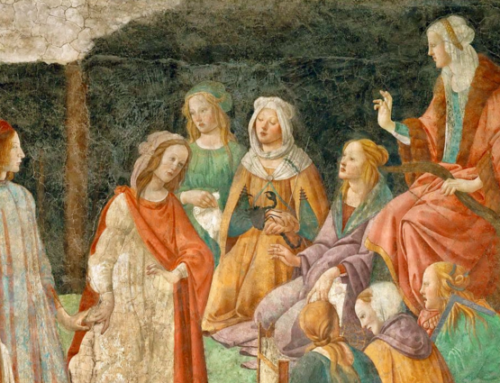
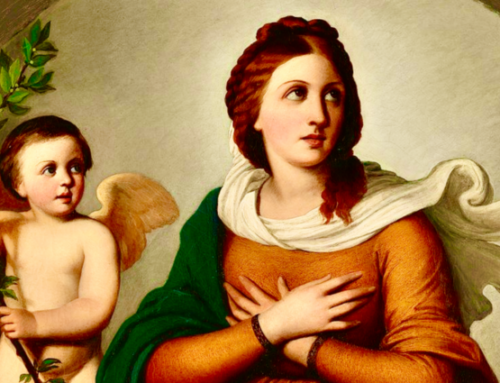
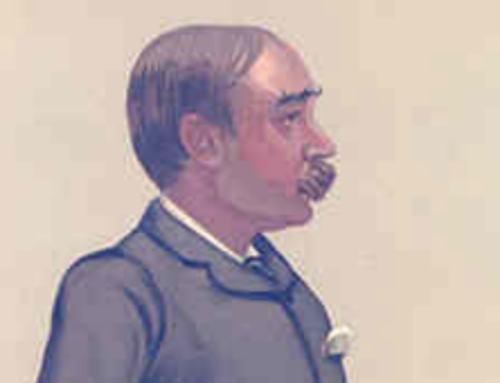
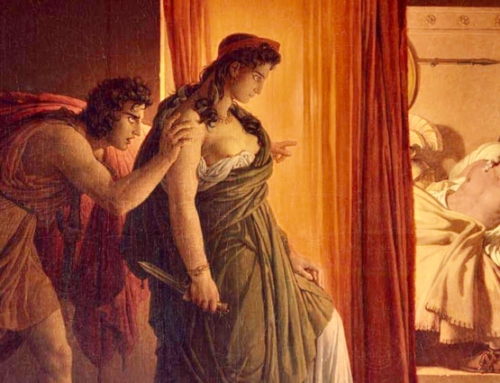
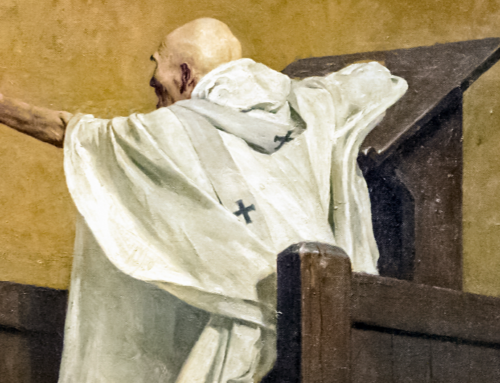
Enjoyed reading this essay. It sparked renewed interest in the Agrarians and makes me want to read further. Thank you!
I was fortunate enough to have had some classes under Dr. Louise Cowan. She was great!
What has consistently fascinated and frustrated me by those who study Agrarian thought is this statement, quoted from the essay, “they were intellectuals, who are always somewhat alienated from their society”. If this is true, then why attempt to study and put into a neat little box with a bow “The South” from the perspective of those who weren’t truly a part of it, when in fact they had committed to be apart from it? Why try to frame an entire society through the prism of moralistic arrogance, while failing to recognize the simplicity and bond that the south shares with every society that came before it in the world? Why separate the south as somehow holding an original sin unique unto itself?
The author adheres to a view of the complexity, and correctly sees different viewpoints, about the South, yet tries to analyze the culture through intellects who shared a bias against it (although not the Sames biases). I truly fail to understand this irreconcilable effort to make something so simple by making it unnecessarily complex and over intellectualizing it, and separating it as if it holds some special mystical hold on history.
The only analogy that I can come up with that explains this conundrum, is to posit that “sometimes, a cigar is just a cigar”.